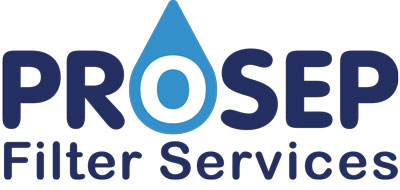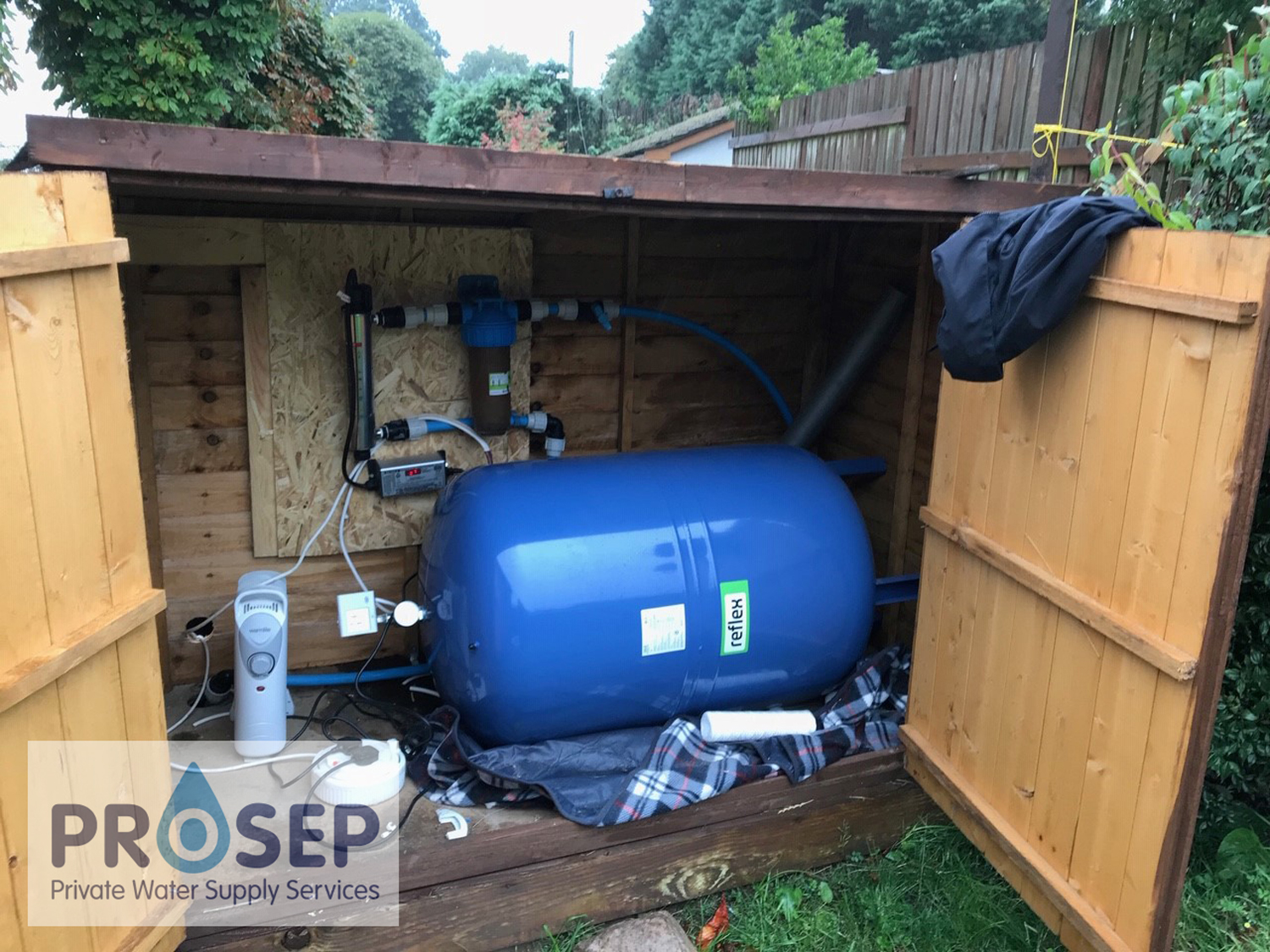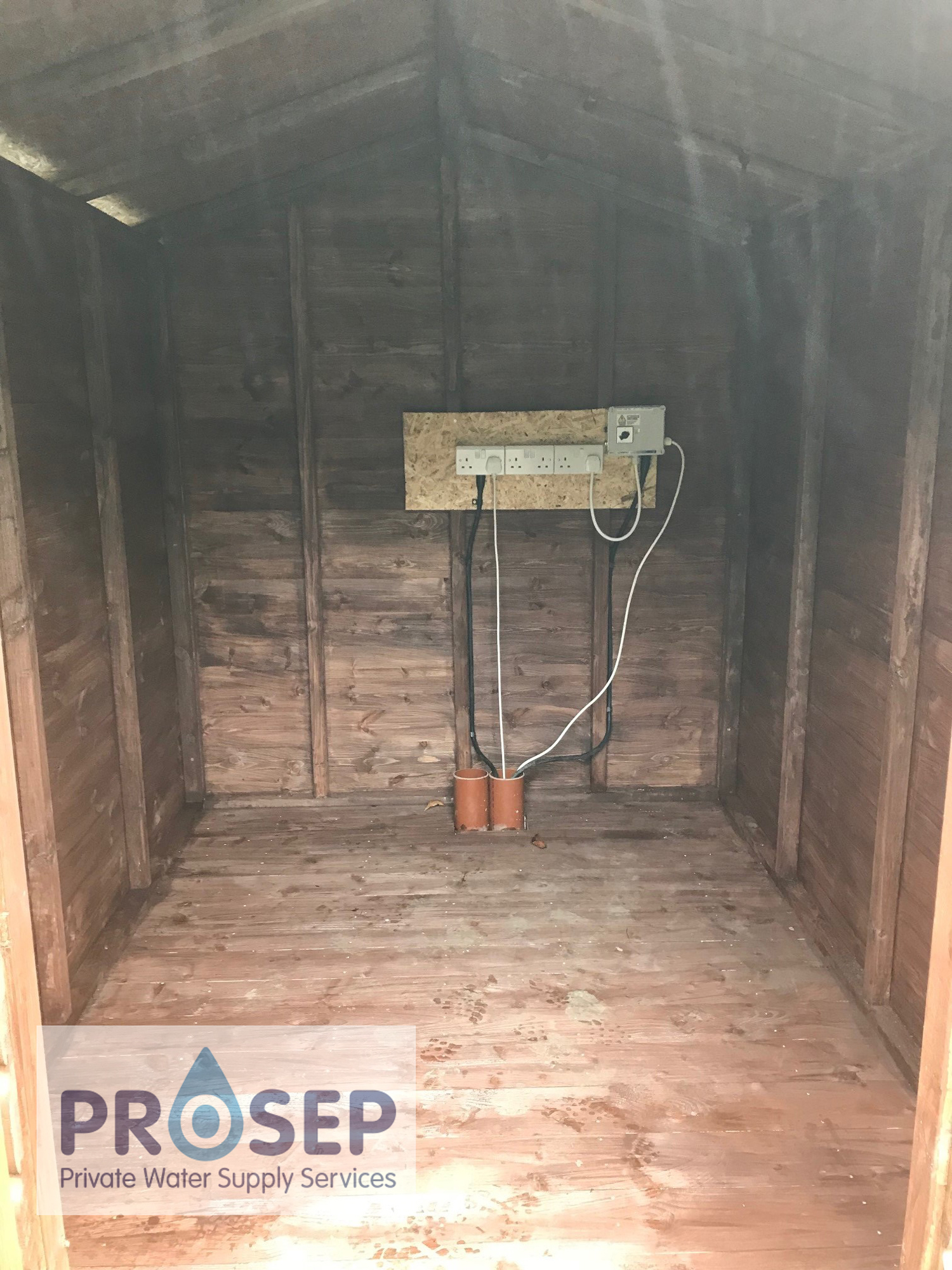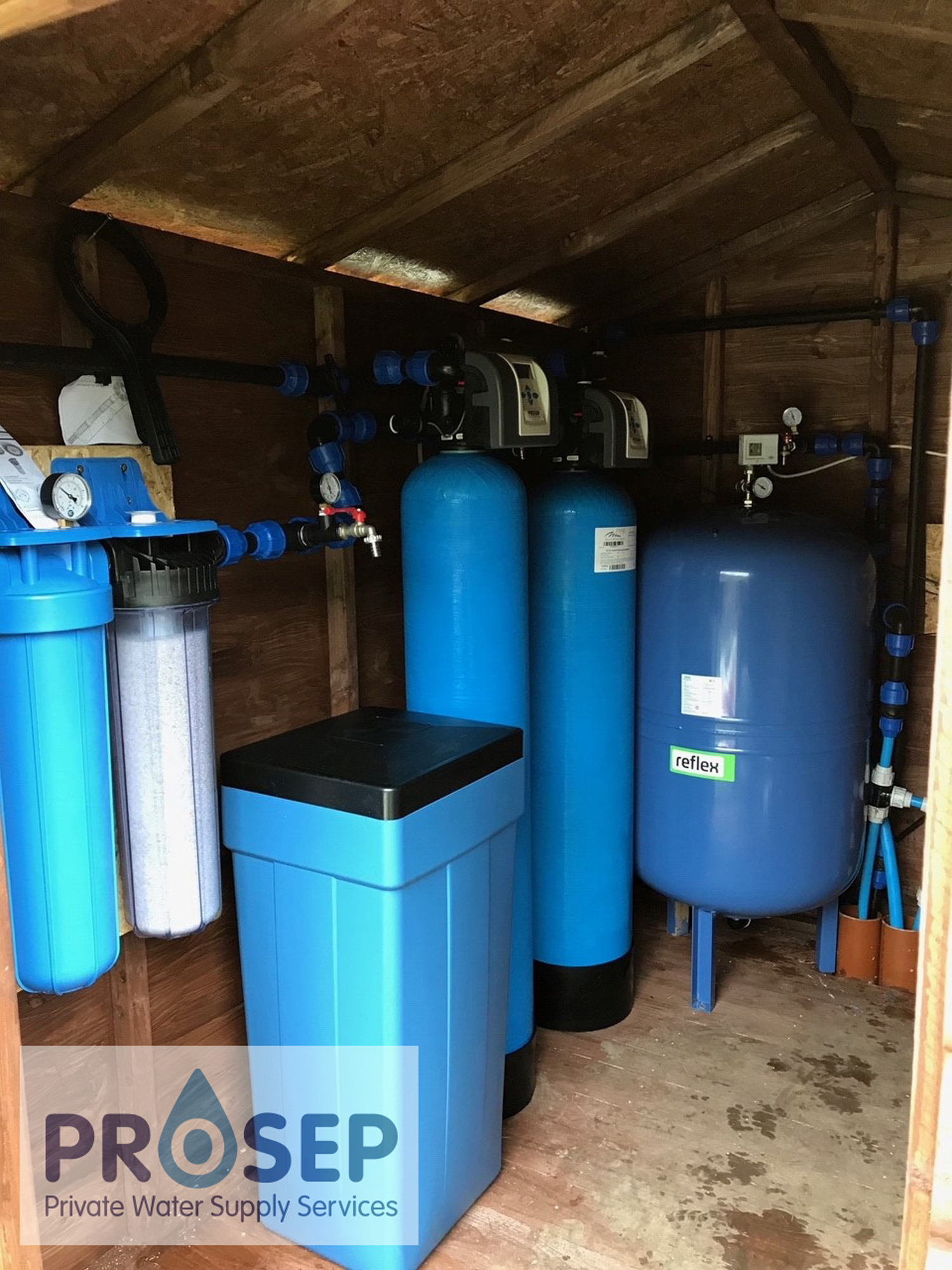Borehole Water Treatment to Remove Iron
An Overview
This existing system in South Wales was significantly undersized. It consisted of a small sediment filter and a small ultraviolet system typically used to treat a single water outlet. Not only was the system inadequate in size, but it had also been installed incorrectly.
The water supply came from a borehole, but the drillers mistakenly tapped into a large underground aquifer. This aquifer was highly susceptible to rainfall, causing water levels to fluctuate. During periods of low rainfall, the iron levels were minimal. However, during heavy rain, the iron content skyrocketed to tens of thousands of micrograms, far exceeding the legal limit of 200. This posed a challenge as we needed a system that could effectively handle extreme levels of iron, manganese, and hardness intermittently, while also addressing relatively lower levels as the norm.
The Solution
Stage 1:
We implemented a comprehensive filtration process to reduce particulate matter and initiate the oxidation process, helping to minimize iron content.
Stage 2:
We employed a specialized media designed to efficiently remove significant quantities of iron in both dissolved and colloidal forms.
Stage 3:
In this stage, we incorporated an ion exchange unit to further eliminate any iron that might have passed through the initial filters. Additionally, it also reduced levels of manganese and hardness present in the borehole water supply.
Other Remarks
At Prosep Filter Services, we meticulously check every installation, paying attention to even the finest details. In the case of this particular installation, our post-treatment on-site sampling confirmed its success. However, we did observe a slight acidity to the water. To rectify this issue, we installed a small pH correction vessel to maintain a neutral pH level.
Furthermore, we installed a 5-micron particulate pre-filter and ultraviolet unit to ensure the borehole water remained free of bacteria.
Useful Info
What is hard water and is it really a bad thing?
Hard water has high mineral content and is formed when water passes through limestone and chalk. This is a natural process and common throughout the country.
Hard drinking water may have health benefits, but over time it leads to limescale buildup on kettles, water heaters and other appliances. This can be a serious problem for industry. A quick indicator that you are in hard water area is that soap will not foam as readily as with soft water.
Water softening is used to reduce hard water’s effects.
Manganese – why is this a problem?
Manganese is an essential nutrient in very small amounts but too much can potentially cause serious health issues such as toxicity to the nervous system and Parkinson’s-like symptoms – particularly in children, the elderly, and pregnant mothers.
Is iron in water bad?
Over time iron in your water supply can cause discolouration and even affect laundry and crockery. The water can taste metallic and can even be detected in coffee and tea, etc. It can also darken drinks; food cooked in water containing iron can turn dark and may also absorb the metallic flavour.
What’s so special about UV?
UV (ultra-violet) filtration will kill harmful bacteria the water and because it involves no chemicals it presents no long-term dangers to health which arguably may be present with other methods.



